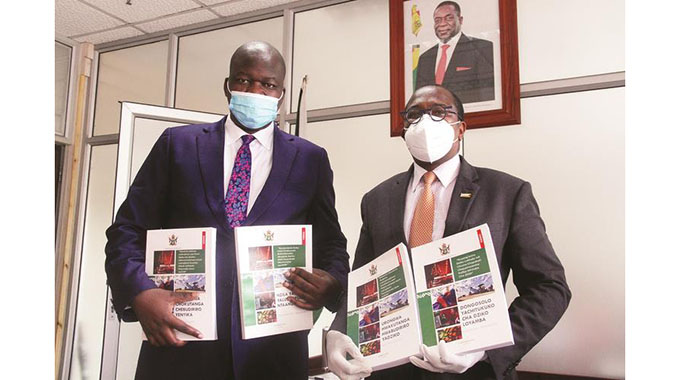Mat’land urged to embrace NDS1
CITIZENS in Matabeleland should embrace the National Development Strategy 1 (NDS1) and participate in projects that are supported by the devolution agenda to promote development in the region, a Government official has said.
NDS1, which succeeded the two-year Transitional Stabilisation Programme (TSP), is the second step of the Second Republic’s drive to attain Vision 2030.
The latest strategy, which was launched by President Mnangagwa last November, charts policies, institutional reforms and national priorities needed between 2021 and 2025 to attain an upper middle-income economy under Vision 2030.
In an interview after a ZBCtv current affairs programme on NDSI that was pre-recorded in Bulawayo last Friday, chief director of communications in the Ministry of Finance and Economic Development, Dr Clive Mphambela said:
“NDS1 is a people-driven programme, there was extensive consultation in building the National Development Strategy as the Government went around the country listening to the contributions from the people.
“We are here in Bulawayo today to discuss the role out of the NDS1 where we are bringing their strategy back to them calling on them to embrace it because it’s a people’s strategy.”
The TSP focused on stabilising the macro-economy and the financial sector, improving infrastructure, and laid the foundation required for economic take-off and growth.
Through the NDS1, which is running under the theme “Towards a Prosperous and Empowered Upper Middle-Income Society by 2030,” it is believed that the blue-print will go a long way in helping the country’s economic recovery efforts, particularly the Government’s thrust to embark on reforms and engagement efforts.
Following the coming into power of the Second Republic in November 2017 led by President Mnangagwa, the Government has embarked on an international re-engagement drive to improve relations with the rest of the world after close to two decades of isolation from the global village.
This was after Zimbabwe was slapped with illegal economic sanctions by the West for embarking on the successful Land Reform programme in 2000.
As part of promoting the economic development agenda, the Second Republic is rationalising the 14 priority areas in the NDS1 and implement them in a phased approach to derive maximum benefits.
Some of the 14 priority areas are: economic growth and stability; food security and nutrition; governance; moving the economy up the value chain and structural transformation; human capital development; environmental protection, climate resilience and natural resource management; housing delivery; Information Communication Technology and the digital economy; health and well-being; transport, infrastructure among others.
“In the olden days, policy makers would just sit-in in Harare and come up with a developmental plan, which is high-level, which in some cases will be insensitive to what people on the ground want.
“As we were going around the country listening to contributions about what the people really want done in their localities and also tied in with the devolution agenda, in other areas you find out that the most important thing to them is a road, an economic corridor.
“We have taken that and plugged it in and this is also why the Government is so focused and determined to roll-out major dam projects and here in Matabeleland His Excellence, the President recently launched the Gwayi-Shangani pipeline in response to the targeted completion of the Gwayi-Shangani Dam,” said Dr Mphambela.
He said the completion of the revitalisation of the Nyamandlovu Acquifer project where 20 new boreholes have been drilled in the past 12 months to support water availability in Bulawayo, was an example of being responsive to the people’s needs.
“NDS1 provides the leap-forward from TSP. It’s a people-driven programme that is inclusive and routed on Vision 2030 where every Zimbabwean will become empowered, thus participation by every citizen in Matabeleland and the country at large in line with the devolution agenda is a vital cog,” said Dr Mphambela. —-chronicle.cl.zw









